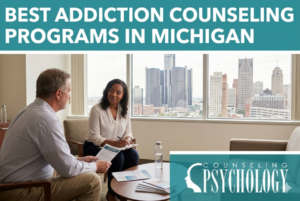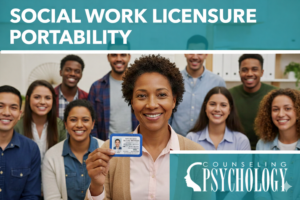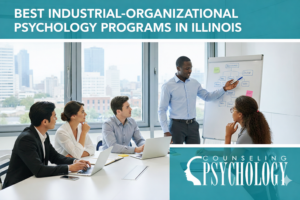
Careers in Counseling
As a counselor, you will work with individuals, couples, families, and groups to address a wide range of issues, including anxiety, depression, grief, and relationship problems. Whether you choose to specialize in a particular area or work with a broad range of clients, a career in counseling is both rewarding and challenging.
| Specialty | Summary & Degree Options |
|---|---|
| Mental Health Counselor | Treat mental illness, help clients develop coping skills, provide support to those who experience mental health problems. Degrees: Master's, Graduate Certificate |
| Licensed Professional Counselor (Clinical) | Assess, diagnose, and treat individuals, couples, and families experiencing a range of mental health and emotional issues using evidence-based therapeutic techniques. Degrees: Master's |
| School Counselor | Assist students in K-12 schools with academic, career, and personal counseling, advocate for students' needs, and provide support. Degrees: Master's, Graduate Certificate, Doctorate |
| Substance Abuse / Addiction Counselor | Counsel those struggling with drug and alcohol problems, provide support to overcome addiction, develop relapse prevention strategies. Degrees: Bachelor's, Master's, Graduate Certificate, Doctorate |
Becoming a counselor of any type starts with the right education. Learn more about counseling degrees, career pathways, schools in your area, and much more.
Careers in Psychology
As a psychologist, you will utilize research, analysis, and evidence-based practice to help individuals and communities work on and understand issues ranging from mental health and behavior to social and developmental challenges. You may specialize in a particular area of psychology or work in academia, research, or private practice.
| Specialty | Summary & Degree Options |
|---|---|
| Clinical Psychologist | Diagnose and treat mental illness, conduct psychological assessments, and provide therapy to individuals, couples, and families. Degrees: Bachelor's, Master's, Graduate Certificate, Doctorate |
| School Psychologist | Assess and support students' academic, social, and emotional development, collaborating with educators and families to create an inclusive learning environment. Degrees: Master's, Doctorate |
| Industrial-Organizational (I/O) Psychologist | Utilize psychology in the workplace to improve employee productivity, satisfaction, and organizational effectiveness. Degrees: Bachelor's, Master's, Graduate Certificate, Doctorate |
| Forensic Psychologist | Apply psychology principles to legal issues, work with law enforcement, lawyers, and judges to provide expert testimony, and conduct research on legal issues. Degrees: Bachelor's, Master's, Graduate Certificate, Doctorate |
Get started on a psychology career by discovering the degree levels available, find schools near you, and learn more about the numerous career specialties available.
Search Counseling & Psychology Programs
Select your education background and program of interest and see all the accredited programs available for you.
Discover Online Programs
From counseling to psychology to social work, online and hybrid degree programs give you the flexibility to learn on your terms.
Find out if an online program is right for you.
Online Counseling ProgramsOnline Psychology ProgramsOnline Social Work ProgramsOnline MFT Programs

Latest Counseling & Psychology Program Rankings
CounselingPsychology.org is pleased to showcase excellence in counseling and psychology education through our comprehensive rankings. Discover the top schools and programs in your chosen specialty and/or state below, and explore our Rankings Methodology for insights into our evaluation process.






